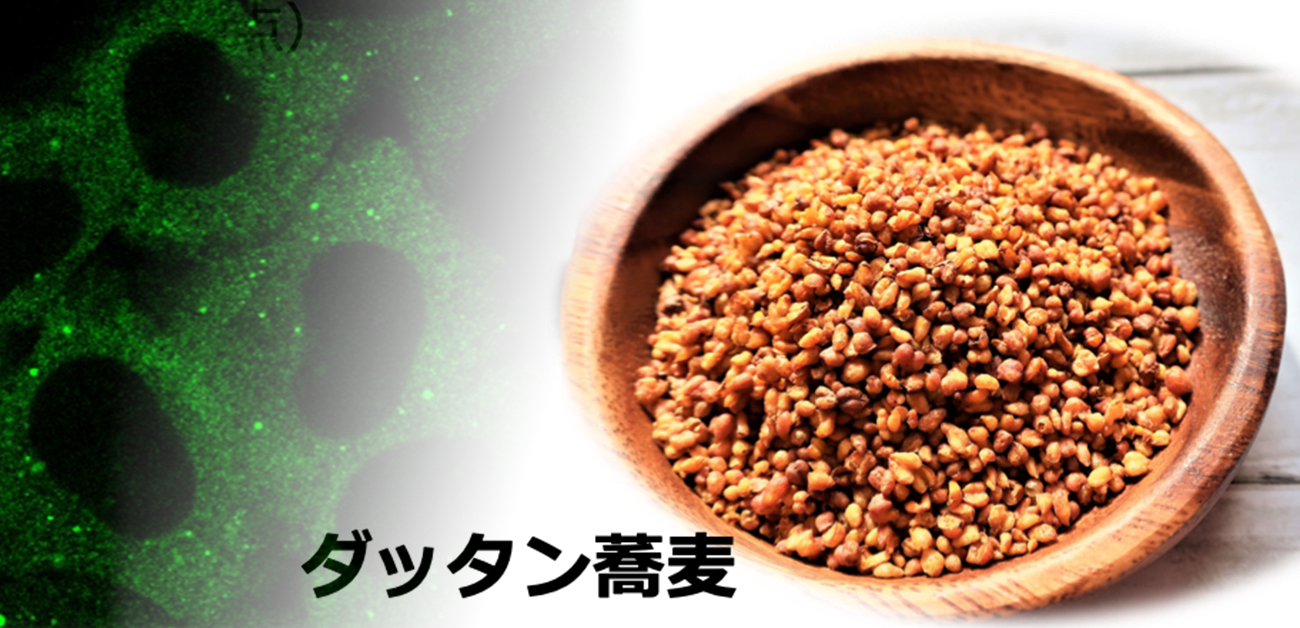
The good herb: buckwheat liquor helps cells clean house
Researchers from Osaka University find that quercetin, a component of tartary buckwheat extract, promotes the degradation of harmful protein aggregates in cells
Seeds like quinoa, amaranth, and buckwheat that have been used for centuries in traditional cuisine are having a trendy moment in culinary circles as alternatives to wheat and other grains. Now, researchers from Japan have found that a traditional liquor made from buckwheat could even be used medicinally.
In a study published last month in Antioxidants, researchers from Osaka University revealed that an ingredient in Chinese buckwheat liquor, which contains various herbal medicine extracts, can induce autophagy, a process that cells use to clean up proteins that are damaged or no longer needed.
Autophagy plays an important role in diseases such as cancer and Alzheimer’s disease, so finding a way to encourage this process is a topic of considerable interest. Herbal substances are an intriguing potential source of compounds that could be used in this type of treatment.
“We already knew that tartary buckwheat liquor, which is used in traditional Chinese medicine, can decrease antioxidants in mice, and that it has some antibacterial effects,” explains lead author of the study Sumiko Ikari. “What we wanted to find out in this study is whether it also affects autophagy.”
To explore this possibility, the researchers treated epithelial (skin) cells and liver cells with tartary buckwheat extract and looked at how different fluorescent markers of autophagy responded.
“The results clearly showed that tartary buckwheat induces autophagy in epithelial cells,” states Takeshi Noda, senior author. “We found that treating cells with the extract stimulated the formation of autophagasomes, specialized cellular structures that carry out autophagy, and altered the location of proteins involved in regulating autophagy.”
When the researchers looked more closely at specific components of tartary buckwheat extract, they found that one component, quercetin, had the same effects as the extract. What’s more, both tartary buckwheat extract and quercetin prompted liver cells to clean up protein aggregates through a process known as aggrephagy.
“Our findings suggest that tartary buckwheat extract and quercetin induce not only autophagy, but also aggrephagy,” says Ikari.
Given that protein aggregates in liver cells are closely linked to alcoholic liver disease, these findings suggest that quercetin could be a useful treatment for patients with this condition. It may also hold promise for treatment of other diseases associated with protein aggregation, such as Alzheimer’s.

Fig.1 Quercetin in tartary buckwheat induces autophagy against protein aggregations
(credit: Takeshi Noda)
The article, “Quercetin in tartary buckwheat induces autophagy against protein aggregations,” was published in Antioxidants at DOI: https://doi.org/10.3390/antiox10081217.
